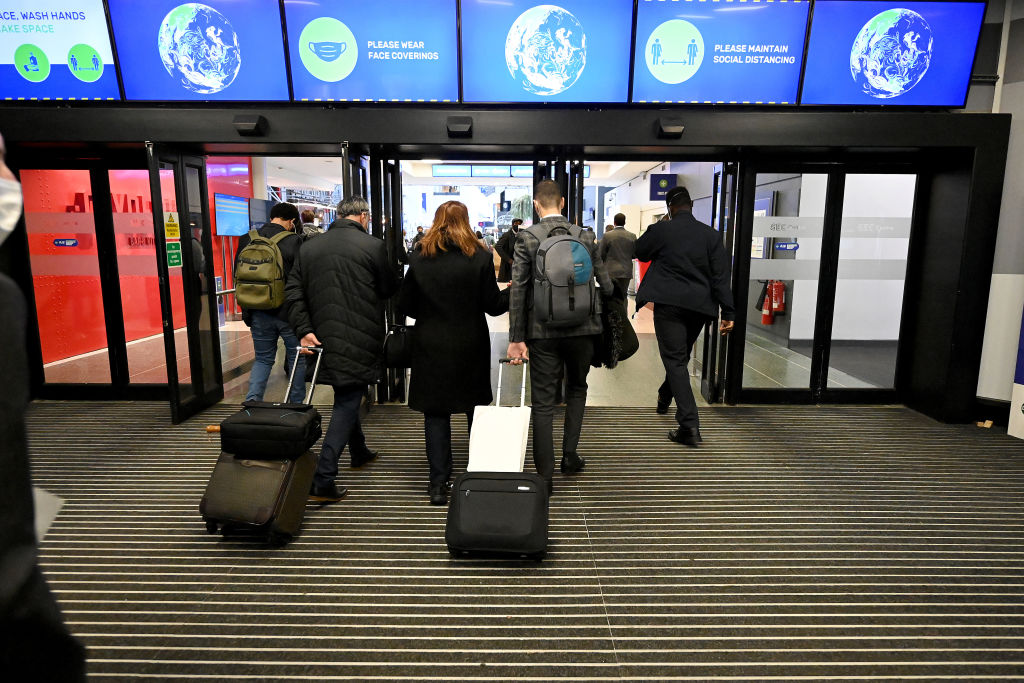Where the COP26 negotiations stand on the summit's last day


A free daily email with the biggest news stories of the day – and the best features from TheWeek.com
You are now subscribed
Your newsletter sign-up was successful
Negotiations at COP26, the United Nations-backed climate summit in Glasgow, were supposed to conclude Friday evening, but, like any great group project, officials have already blown past their deadline, The Washington Post reports.
Though it is "typical" for U.N. climate conferences to "go into overtime," notes the Post, COP26 President Alok Sharma declared as late as Friday afternoon his "sincere intention ... to bring this conference to a smooth and orderly close at the end of today."
Negotiators, however, are still "wrestling with big differences over the wording of what they hope will be a meaningful agreement" to come out of the climate change summit, writes The Wall Street Journal. One big hang-up is climate financing — though rich countries have promised to funnel money to poorer countries to assist with climate protection and initiatives, they remain at odds over the amount.
The Week
Escape your echo chamber. Get the facts behind the news, plus analysis from multiple perspectives.

Sign up for The Week's Free Newsletters
From our morning news briefing to a weekly Good News Newsletter, get the best of The Week delivered directly to your inbox.
From our morning news briefing to a weekly Good News Newsletter, get the best of The Week delivered directly to your inbox.
Another issue involves the language governing fossil fuel subsidies in the current draft deal, which critics claim allege is too weak and "corrupted by fossil fuel interests," per The New York Times. More specifically, the latest version of the text employs qualifying language like "inefficient" or "unabated," which activists fear will allow "big polluting nations to continue underwriting the use of [some] fossil fuels" rather than requiring them to phase out subsidies completely.
After almost two weeks of talks, such outstanding differences "signaled that it would be difficult for negotiators to reach the sort of sweeping agreement that activists and scientists had urged before" the start of the conference, estimates the Times.
Still, some experts see progress. "Overall, on balance, this is definitely a stronger and more balanced text than we had two days ago," said Helen Mountford of the World Resources Institute.
A free daily email with the biggest news stories of the day – and the best features from TheWeek.com
Brigid Kennedy worked at The Week from 2021 to 2023 as a staff writer, junior editor and then story editor, with an interest in U.S. politics, the economy and the music industry.
-
 How the FCC’s ‘equal time’ rule works
How the FCC’s ‘equal time’ rule worksIn the Spotlight The law is at the heart of the Colbert-CBS conflict
-
 What is the endgame in the DHS shutdown?
What is the endgame in the DHS shutdown?Today’s Big Question Democrats want to rein in ICE’s immigration crackdown
-
 ‘Poor time management isn’t just an inconvenience’
‘Poor time management isn’t just an inconvenience’Instant Opinion Opinion, comment and editorials of the day
-
 The plan to wall off the ‘Doomsday’ glacier
The plan to wall off the ‘Doomsday’ glacierUnder the Radar Massive barrier could ‘slow the rate of ice loss’ from Thwaites Glacier, whose total collapse would have devastating consequences
-
 Can the UK take any more rain?
Can the UK take any more rain?Today’s Big Question An Atlantic jet stream is ‘stuck’ over British skies, leading to ‘biblical’ downpours and more than 40 consecutive days of rain in some areas
-
 As temperatures rise, US incomes fall
As temperatures rise, US incomes fallUnder the radar Elevated temperatures are capable of affecting the entire economy
-
 The world is entering an ‘era of water bankruptcy’
The world is entering an ‘era of water bankruptcy’The explainer Water might soon be more valuable than gold
-
 Climate change could lead to a reptile ‘sexpocalypse’
Climate change could lead to a reptile ‘sexpocalypse’Under the radar The gender gap has hit the animal kingdom
-
 The former largest iceberg is turning blue. It’s a bad sign.
The former largest iceberg is turning blue. It’s a bad sign.Under the radar It is quickly melting away
-
 How drones detected a deadly threat to Arctic whales
How drones detected a deadly threat to Arctic whalesUnder the radar Monitoring the sea in the air
-
 ‘Jumping genes’: how polar bears are rewiring their DNA to survive the warming Arctic
‘Jumping genes’: how polar bears are rewiring their DNA to survive the warming ArcticUnder the radar The species is adapting to warmer temperatures
